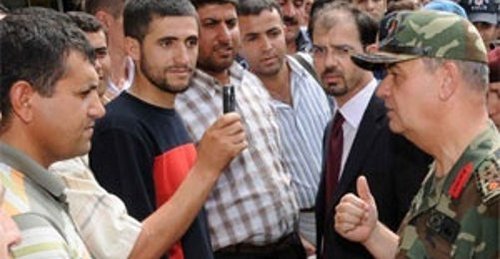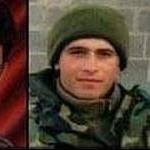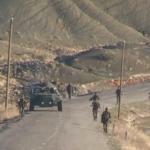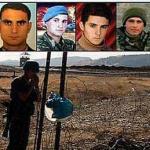The death of four soldiers in Elazığ last week was initially declared to have been an accident. It later emerged that Lieutenant Mehmet Tümer had handed a private a hand grenade with the pin pulled out as a "punishment" for having fallen asleep on watch.
Now a second allegation against the army has been published: A land mine which killed six soldiers and wounded a further eight in Çukurca, province of Hakkari, in May this year, was declared by the army to have been planted by the PKK, but the Bugün newspaper has broadcast phone recordings alleged to be of officers discussing the fact that the mine was planted by the army itself.
What these two events have in common is of course that the public has been misinformed. A deadly "punishment" by a superior was camouflaged as an "accident", and the mine explosion was declared a "PKK attack". Prime Minister Erdoğan was swayed in his plans to meet with the pro-Kurdish Democratic Society Party (DTP) after the mine explosion.
At the time of writing, the General Staff has yet to make an official statement related to these two incidents.
Question 1: Why was misleading information given?
Why were the public and the families of the soldiers misinformed? According to the recordings of the phone conversations said to have taken place between commanders in Hakkari, they reported the explosion as a "PKK explosive trap" despite knowing the truth. The General Staff's list of "Events in the struggle against the separatist terrorist organisation" still lists the explosion as such an attack. In Elazığ, Lieutenant Tümer says that he gave the private the hand grenade without the pin "as part of the opportunity education to show the importance of hand grenades"; the families of the dead soldiers, and the public, were told that "an accident" happened.
Question 2: Who prepared the misleading information? What will you do about them?
Elazığ Governor Muammer Erol says that he was told by the Elazığ Corps Command that an accident had taken place. Which officials spoke to the governor and told him this? What will you do about them and the Corps Command?
According to the recordings, Hakkari Division Commander General Gürbüz Kaya and Çukurca Brigade Commander General Zeki Es knew about the truth, and Es knew that Batallion Commander Lieutenant Colonel Taner reported the incident as a "PKK attack". What will you do about these people who reported misinformation, and others who knew about it?
Question 3: Why are you not making a statement?
The events in Elazığ were published two days ago (26 August), and yesterday (27 August) newspapers reported on the mine explosion in Çukurca. Why has there not been an official statement?
Question 4: Why could Private İbrahim Öztürk not refuse to hold a grenade with the pin removed?
Why did Öztürk not refuse, or why could he not refuse, to take the hand grenade that Lieutenant Tümer said he gave him? Why did a soldier not use the right of refuisng an illegal command? Were the conditions such that he feared an unregistered punishment or even worse sanctions? If that was the case, how will you identify these conditions and how will you change them?
Question 5: Why were soldiers affected by the mine?
Did the soldiers in Çukurca know that mines had been planted there? Did they have mine-searching or protective equipment? Had they received mine education?
Question 6: What are you doing to prevent punishments in the army that violate human rights?
How frequent are punishments in the army that violate human rights, damage physical and psychological health, cause physical or psychological pain and distress and are aimed at intimidation? What kind of practices are most common? What are you doing in order to prevent such illegal practices? What kind of sanctions do you apply to military officials who have been identified as handing out such punishments?
Question 7: How do you safeguard the right of juniors to seek justice?
How do juniors apply in order to make complaints about human rights violations by their superiors in the army? How frequent are such applications and what are the results? Do soldiers know how they can seek justice and that this is a basic human right? Do you inform them of all channels? What are you doing to safeguard effective methods of seeking justice and protecting this right?
Questions to PM
Of course we also need to add the questions of Şerafettin Halis, MP for the DTP, who yesterday asked the Prime Minister the following:
1. In the last twenty years, how many soldiers died from bombs or explosives in incidents that were described as accidents?
2. In the last twenty years, how many soldiers died in alleged suicide cases?
3. How many families of soldiers said to have died in accidents or to have killed themselves have gone to court?
4. What is the distribution according to province (place of birth) of those soldiers said to have died in an accident or in a suicide? (TK/AG)







